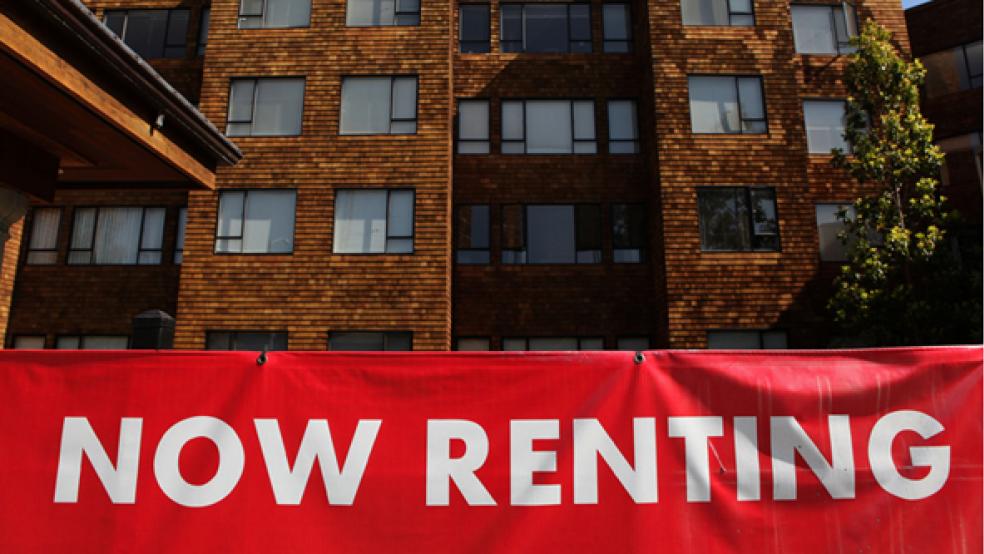Fewer Americans own homes than ever before, and rising consumer confidence does not appear to be changing that.
The nation's homeownership rate dropped to a record low in 2016 from a record high in 2004, and even as home sales improve, first-time buyers are still missing out on much of the recovery. Some renters are staying put by necessity and some by choice — it depends on who is asking them.
Related: The 15 Best Home Remodeling Projects for Your Money
The number of renters who said they don't know when they expect to move rose to 37 percent in March compared with 30 percent in a survey conducted last September, according to a survey released this week by Freddie Mac, which helps finance the multifamily apartment market.
Survey respondents who said they expect to move during the next two years fell to 33 percent from 38 percent since September. In addition, 55 percent of all respondents, and 60 percent of 35- to 49-year olds, said they like where they live and don't plan to move even if their rents rise.
The survey — conducted online by Harris Poll on behalf of Freddie Mac — took place between March 3 and March 6, and included 4,283 adults aged 18 and over, 1,282 of them renters.
"It would appear from our new survey that renters today feel better about their finances, like where they are living, and view renting favorably," said David Brickman, executive vice president of Freddie Mac Multifamily. "This is consistent with findings from earlier surveys that show a steadily growing number of renters have a positive view of renting."
Rent: The 9 States With the Hottest Housing Markets to Start 2017
A separate survey by Zillow, a real estate company which lists both rental and for-sale properties, found more two-thirds of renters said that saving for a down payment was keeping them from buying a home. Zillow's "Housing Aspirations Report" also found about half of renters surveyed said high levels of debt and being unable to qualify for a mortgage were also barriers to homeownership.
With home prices hitting new peaks in many markets, a 20 percent down payment on a typical home costs more than two-thirds of about $56,000, the national median annual household income, according to Zillow.
There are low down payment options, like 3.5 percent down, government-insured Federal Housing Administration loans, but they require additional mortgage insurance payments, which can be costly.
The Zillow Housing Aspirations Report, a semi-annual survey sponsored by Zillow and conducted by IPSOS, asked 10,000 renters and homeowners in 20 metropolitan areas about their views on homeownership and their personal housing expectations going forward.
"Rising rents are also a factor — it's extremely difficult to save when you're paying record-high rents," said Zillow Chief Economist Dr. Svenja Gudell. "For those trying to save for a down payment, it's important to set realistic goals and realize it may take a few years."
Both the Zillow and Freddie Mac surveys found a growing level of confidence among renters — in their own financial situations, in the greater economy, and in the value of home ownership overall. Still, the number of renters who say renting is a good choice for them now increased, as did those renters saying they plan to rent their next home, according to Freddie Mac.
A third survey, this one from Bank of America, a leading mortgage lender, found that, among millennials buying homes, more sought cheaper starter homes, rather than "dream" homes, as a previous survey had suggested.
"Sometimes you get the impression about this generation that they've got to have it all and it's all or nothing," said Steve Boland, consumer lending executive at Bank of America. "I think that really they're learning now that this is a stepping stone."
In addition, 86 percent of those surveyed said owning a home is more affordable than renting. This is in sharp contrast to consumers who have not bought a home yet; just 54 percent of them said owning is more affordable than renting.
Bank of America's survey was conducted by GfK Public Communications and Social Science. The survey was conducted online from January 24 through February 2. A total of 4,906 adults age 18+ were surveyed, including 1,268 current homeowners and 435 prospective homeowners.
Clearly, the spin on owning versus renting varies by survey and by those conducting the survey, but the hard facts remain the same — renter demand is still very high, homeownership is very low, and while most Americans may want to own a home someday, fewer people can afford it. Home sales are rising, but so is the number of investors buying homes to flip or rent. That is only making it harder for those who want to buy and live in their home to be able to find and afford to do just that.
This article originally appeared on CNBC. Read more from CNBC:
With bank earnings on tap, here's how traders are looking to cash in
As Apple makes more of its own chips, one supplier is especially threatened, says analyst
Trump backtracks on China, won't label it a currency manipulator


